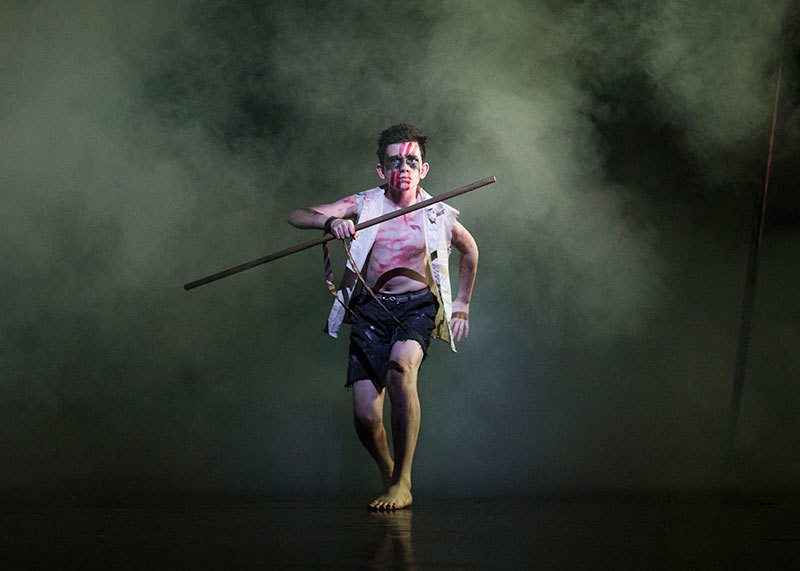
Over the years Matthew Bourne has built a reputation as a dance maker who can put a new twist on an old tale. But even by his elevated standards, Lord of the Flies is something extraordinary.
In fact Bourne is credited as director here; his long time collaborator Scott Ambler is choreographer. Together they create an exhilaratingly good adaptation of William Golding's seminal novel, now 60 years old, but as frighteningly insightful as ever.
The impetus for the production was to devise a community project to encourage boys to unlock their desire to dance – and their creativity. So at each venue on a 13 city tour, 24 new recruits (a different set in each city), many unfamiliar with dance, perform alongside full-timers from the New Adventures company.
But it is such a success that by the end of an absorbing two hours you have completely forgotten that only eight professional dancers are involved. You are simply gripped by the power and emotion of the storytelling.
Every word of Golding's narrative is honoured yet utterly changed in dance that makes you both remember the book in all its vivid detail and see it in an entirely new light. Bourne, Ambler and designer Lez Brotherston have transposed the action from a desert island to a shuttered and deserted theatre. They work hard to find exact equivalents for every image in a story that charts the descent of a group of abandoned boys from Arcadian innocence to post-Lapsarian savagery.
So a conch shell, symbol of civilised discourse, becomes an empty Shell oil drum, struck by Dominic North's idealistic Ralph to bring order; a falling spotlight stands in for a murderously hurled boulder; the pilot who falls from the sky becomes a tramp-like intruder.
The moment when fear – and the notion of the Beast – enters the boys' world is created is conjured by strafing lights and frozen poses. It's brilliantly wrought and strikes to the heart of the tale. From the moment the boys enter, marching in angelic order, to the close when they viciously fling themselves across the stage, pursuing Ralph like war-painted savages, the trajectory of their transformation is astonishingly swift.
Each incident is clearly charted with the help of an atmospheric score from Terry Davies (complete with live cello) and movement that makes effective use of the sheer size and energy of its cast.
In the opening scenes, the boys play in Paradise, wheeling like aeroplanes, inventing creative games, full of innocence and wonder. But violence threatens. At one chilling moment a boy is pelted with empty food wrappers; bespectacled Piggy is always bullied.
By the close Danny Reubens's powerful Jack towers over his brutal choirboy hunters like a mini Colonel Kurtz. They whoop and grunt as they pump their arms like deranged warriors, prowling the stage in ferocious unison, banging their sticks. The murderous rule of terror has replaced the empty remnants of civilisation, symbolised by the coats among which Ralph hides.
Yet in their climactic fight, Jack and Ralph wrestle and throw boxing punches; they are still only little boys.
It is this kind of physical intelligence that makes Lord of the Flies so impressive. It is also surprisingly moving – partly because the boys are so committed and partly because its effect is to make a world of order, hope and kindness vanish in front of your eyes.


